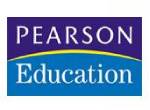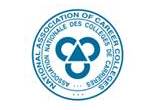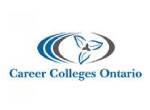Post Graduate Certificate in Medical-Surgical Nursing
( PGCMSN )
❖ Pathophysiology
Learning Objectives
At the end of this course, the learner will be able to:
1. Identify pathophysiology related to an acute or chronic condition
2. Understand general principles of pathophysiology (e.g., injury and repair, immunity, cellular structure)
❖ Potential for Alterations in Body systems
Learning Objectives
At the end of this course, the learner will be able to:
1. Identify client potential for aspiration (e.g., feeding tube, sedation, swallowing difficulties)
2. Identify client potential for skin breakdown (e.g., immobility, nutritional status, incontinence)
3. Identify clients with increased risk for insufficient vascular perfusion (e.g., immobilized limb, post-surgery, diabetes)
4. Educate client on methods to prevent complications associated with activity level/diagnosed illness/disease (e.g., contractures, foot care for the client with diabetes mellitus)
5. Compare current client data to baseline client data (e.g., symptoms of illness/disease)
6. Monitor client output for changes from baseline (e.g., nasogastric tube, emesis, stool, urine)
❖ Therapeutic Procedures
Learning Objectives
At the end of this course, the learner will be able to:
1. Assess client response to recovery from local, regional, or general anesthesia
2. Apply knowledge of related nursing procedures and psychomotor skills when caring for clients undergoing therapeutic procedures
3. Educate the client about treatments and procedures
4. Educate the client about home management of care
5. Use precautions to prevent further injury when moving a client with a musculoskeletal condition (e.g., log-rolling, abduction pillow)
6. Monitor the client before and after a procedure/surgery (e.g., cast extremity)
7. Monitor effective functioning of therapeutic devices (e.g., chest tube, drainage tubes, wound drainage devices, continuous bladder irrigation)
8. Provide preoperative or postoperative education
9. Provide preoperative care
❖ Laboratory Values
Learning Objectives
At the end of this course, the learner will be able to:
1. Identify laboratory values for ABGs (pH, PO2, PCO2, SaO2, HCO3), BUN, cholesterol (total), creatinine, glucose, glycosylated hemoglobin (HgbA1C), hematocrit, hemoglobin, INR, platelets, potassium, PT, PTT & APTT, sodium, WBC
2. Compare client laboratory values to average laboratory values
3. Educate the client about the purpose and procedure of prescribed laboratory tests
4. Obtain blood specimens (e.g., venipuncture, venous access device, central line)
5. Obtain specimens other than blood for diagnostic testing (e.g., wound, stool, urine)
6. Monitor client laboratory values (e.g., glucose testing results for the client with diabetes)
7. Notify primary health care provider about laboratory test results
❖ Alterations in Body Systems
Learning Objectives
At the end of this course, the learner will be able to:
1. Assess adaptation of a client to health alteration, illness, and disease
2. Assess tube drainage during the time the client has an alteration in body systems (e.g., amount, color)
3. Assess client for signs and symptoms of adverse effects of radiation therapy
4. Identify signs of potential prenatal complications
5. Apply knowledge of nursing procedures, pathophysiology, and psychomotor skills when caring for a client with an alteration in body systems
6. Educate the client about managing health problems (e.g., chronic illness)
7. Implement and monitor phototherapy
8. Implement interventions to address side/adverse effects of radiation therapy (e.g., dietary modifications, avoid sunlight)
9. Maintain the optimal temperature of the client
10. Perform and manage the care of clients receiving peritoneal dialysis
11. Perform suctioning
12. Promote client progress toward recovery from an alteration in body systems
13. Provide care to a client who has experienced a seizure
14. Provide pulmonary hygiene (e.g., chest physiotherapy, incentive spirometry)
15. Provide care for a client experiencing complications of pregnancy/labor and delivery (e.g., eclampsia, precipitous labor, hemorrhage)
16. Provide care for a client experiencing increased intracranial pressure
17. Provide postoperative care
18. Remove sutures or staples
19. Evaluate client response to surgery
20. Evaluate achievement of client treatment goals
21. Evaluate client response to treatment for an infectious disease (e.g., acquired immune deficiency syndrome [AIDS], tuberculosis [TB])
22. Evaluate and monitor client response to radiation therapy
AFFILIATED PARTNERS





